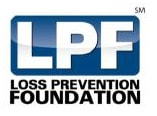Building a successful career in loss prevention has always been predicated on the commitment to professional growth and development. Working in a business as dynamic as retail, it is essential that we remain flexible in our methods and progressive in our approach to a global retail market. As the business moves forward change comes quickly, and our skills and abilities must evolve to meet the needs and expectations of a new professional standard.
But true growth must be built on a solid foundation. Especially when we consider the pace of change, we find that success is largely based on the refinement of the fundamental principles that anchor our skills and our decision-making. By expanding on our foundation of knowledge, we give ourselves a stronger and more stable base to build upon. We reinforce our futures by broadening our opportunities.
Mentoring Principles
Mentors are advisors with relative personal and career experience that are willing to share their knowledge and understanding in order to help us grow. They provide a means to help you understand how your ambitions and abilities fit into your career choices. By providing moral and emotional encouragement, they guide us in the right direction and offer feedback on our performance and our decisions.
Effective leaders must possess integrity and humility; recognizing the importance of having others that can help us to grow and develop. Our willingness to take advice and direction greatly impacts our ability to expand our talents and make a difference. By the same respect, a leader must be willing to help others to act; assuming the responsibility to nurture others in a way that will help them grow. We must seek out and accept mentors while also undertaking the guidance and responsibility of mentorship; assuming both roles with equal passion, enthusiasm and accountability.
As professionals, our mentors need to come from a number of different sources, but also a variety of different fields. Our role has particular demands that require specialized training and background. However, we must also keep in mind our place in the bigger picture. Finding mentors in other areas of the retail business is critical to our long term growth as a professional.
Identifying Mentors
However you go about choosing your mentors, it’s always important to find those that fit your career model and your personality so that you can learn and grow through their example. However, it’s just as valuable to consider those that do things a little differently—challenging our perspective and our way of doing things so that we learn to think, react and respond in different ways. There are times when differences are complimentary rather than contrasting, and can help make us better at what we do.
Ultimately, a mentor should be someone who you feel that you can work with, and can help you make progress towards your goals. Many will surface by themselves, while others we may have to seek out on our own. We should start by determining what it is that we hope to accomplish, consider the type of leader that we hope to be, and find those that can best help us get there.
Becoming a Mentor
Mentoring should be considered a privilege as much as it is a responsibility. It takes similar interest, commitment and confidence in a protégé as it does in your own growth and abilities. It requires that you are sincerely interested in someone else’s development. We have to be willing to give our time, effort and expertise. We have to be patient and understanding. We have to show trust and candor, and honor the confidences that others share with us. Most importantly, we have to be able to both command respect and show respect to others. While our focus will be to motivate, support, guide and develop, our protégés will also be looking to us as a benchmark for professional values, personal integrity and ethical conduct.
A mentor doesn’t have to have all of the answers, and shouldn’t pretend that they do. They must have the self-discipline to allow others to solve their own problems. It requires a sense of humor and the humility to see the lighter side; as well as a sense of duty and the sacrifice to make the tough calls. The relationship should be based on honesty, confidence and integrity. It takes devotion, common bonds and common sense.
Serving as a mentor can help us to reaffirm—and occasionally reshape—our own abilities and professional philosophies. It allows us to see ourselves in a different way, and come out a better leader as a result. There will be periods when they will grow in ways that require some separation as they test their own waters and explore their independence; but as the relationship matures and the protégé shapes their professional identity, we are provided with a legacy as well as a devoted colleague.
By capitalizing on opportunities to enhance our knowledge and education, we are making an investment in our own future. To learn more about developing your leadership skills and the certification process, visit losspreventionfoundation.org.


